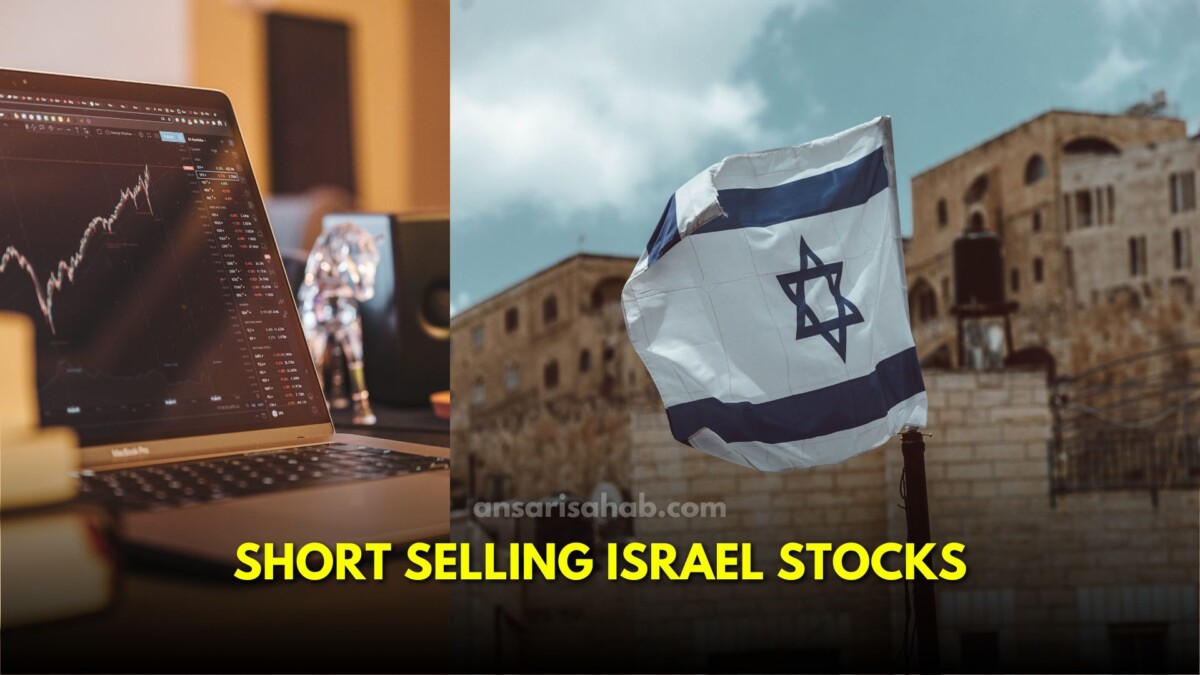In October 2023, Israel faced a series of devastating attacks by Hamas, leading to an 11-day war with severe consequences. Shockingly, recent allegations suggest that some may have profited from these events through suspicious trading activities like short selling of Israel stocks. This blog explores the findings of a comprehensive study by law professors Robert Jackson Jr. and Joshua Mitts, shedding light on potential insider trading before the October 7 attacks and the subsequent investigations by Israeli authorities.
Understanding Short-Selling Anomalies
Before delving into the investigation, it’s essential to understand the nature of short-selling and the anomalies that caught the researchers’ attention. Short-selling involves borrowing and selling stocks with the expectation of buying them back at a lower price, thereby making a profit. The study focused on a significant surge in short-selling activities, particularly in the MSCI Israel Exchange Traded Fund (ETF), leading up to the October 7 attacks.
The Research by Jackson and Mitts
Robert Jackson Jr. and Joshua Mitts conducted a meticulous study using data from the Financial Industry Regulatory Authority (FINRA). Their research revealed an extraordinary spike in short-selling of Israeli stocks in the days preceding the Hamas attacks. Notably, short-selling of the iShares MSCI Israel ETF increased by 40% in the week leading up to the events, indicating potential advanced knowledge.
Key Findings
The researchers identified several key findings:
- Concentration in Specific Stocks: The surge in short-selling was concentrated in a small number of stocks, suggesting that certain traders had specific knowledge of the impending attacks rather than a broader market trend.
- Timing of Short-Selling: The timing of the short-selling activities, especially in the two days leading up to the attack, raised suspicions of possible insider information being used for financial gain.
- Brokerage Discrepancies: Short-selling activities were not evenly distributed across all brokerages; a small number were responsible for a disproportionate amount of the suspicious trades.
The Investigation by the Israeli Securities Authority (ISA)
Prompted by the study’s alarming findings, the Israeli Securities Authority (ISA) launched an investigation into the matter. While the ISA has not commented on the specific allegations, it has acknowledged the importance of the issue and the ongoing investigation involving all relevant parties.
Potential Consequences
If the ISA finds evidence of traders having advance knowledge of the attacks and exploiting this information for financial gain, severe consequences could follow. Criminal charges may be levied against the implicated individuals, and the investigation might lead to reforms in Israeli law to prevent insider trading.
Debating the Role of Short-Selling
The study’s revelations have reignited the debate on the role of short-selling in financial markets. Some argue that short-selling provides valuable market information, helping identify overvalued stocks. On the flip side, concerns are raised about the potential harm, as excessive short-selling can create downward pressure on stock prices, impacting market stability.
Calls for Reforms
In response to the study, Jackson and Mitts have proposed reforms to enhance the integrity of the Israeli stock market:
- Prompt Disclosure: They suggest requiring traders to disclose short positions more promptly to improve transparency.
- Strengthening Enforcement: Advocating for strengthening the ISA’s enforcement powers to better deter and punish insider trading.
- Increased Penalties: Proposing an increase in penalties for insider trading to serve as a deterrent for potential wrongdoers.
Conclusion
The study by Jackson and Mitts, combined with the ongoing investigation by the ISA, raises serious concerns about the possibility of insider trading before the October 7 Hamas attacks. The outcome of the investigation holds significant implications for the implicated traders, potential legal reforms, and the overall confidence in the Israeli financial markets. As the ISA continues its inquiry, the need for market transparency and integrity takes center stage, emphasizing the importance of preventing and addressing any form of market manipulation.









